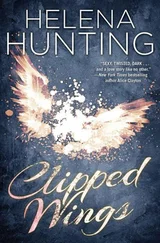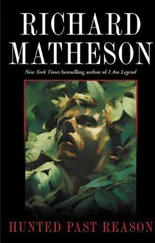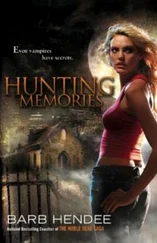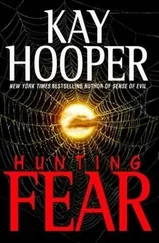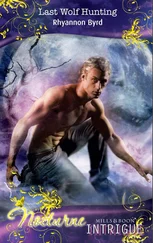Richard Zimler
Hunting Midnight
To all those who fought to end the abomination of slavery in the United States and southern Africa. And to Midnight and his people.
Grateful thanks to my editor, Samantha Bruce-Benjamin, for her extraordinary passion, intelligence, generosity and hard work.
Thanks too, to Cynthia Cannell for her loyalty and enthusiasm, and to Kate Miciak for her faith and support.
It is sometimes a difficult job reading an early draft of a novel, and I am grateful to Douglas Herring, Ruth G. Zimler, Michael Rakusin, and Alexandre Quintanilha for their invaluable comments.
I am forever in debt to Laurens van der Post, whose books first started me hunting for Midnight, and to authors too numerous to name for their wonderful historical research.
Special thanks to Alex, who — like this book — links three continents.
Afierce wind was driving the rain in off the sea as I made my way home across the slippery cobblestone streets of my beloved city of Porto.
It was May of 1798, a month after my seventh birthday. Carefully tucked away inside my cane basket were two scrolls of indigo muslin that I had agreed to fetch for my mother — but only in exchange for a favor, I have to confess. If this rain were to splash so much as an inch of her fabric, she would grumble to herself all evening and refuse to make me my favorite sweet. Hence, not so much for the continued protection of the goods themselves as for the sake of my sweet tooth, I sought out shelter.
A certain inherited distrust of all things religious prompted me to choose Senhor David’s old bookshop, rather than the whitewashed chapel next door, as a place to wait out the storm. As I entered through the low doorway, David encouraged me to leave my basket behind his writing desk and to remove my sodden boots, which he dangled over the iron railing by his fireplace.
“Senhor David,” I asked, “may I go to the British Isles?”
“Off with you, lad!” he said, smiling.
I dashed over the creaking wooden floor to the musty back room where he kept his treasure trove of English books, which Father and I had referred to as the British Isles for as long as I could remember.
I ought to explain that although I was born in Porto, a provincial city of sixty-five thousand souls in the north of Portugal, Father had had the honor — as he so often referred to it — of having been born a Scotsman. I was not yet aware of it, but when I spoke English, I had a distinctly Scottish accent.
Of tightly packed shelving, mildew, and thread-legged spiders these British Isles were blessed in abundance but, alas, they boasted nary a decent window save for the small octagonal skylight in the low, sagging ceiling. The rain was pelting down on its yellowing glass, creating a pattering din, rather like mice scampering.
It was so dark that I could barely see my own hands, and I was just considering asking for a candle when the sun suddenly peeked through the clouds, illuminating a bookshelf against the wall. Stepping closer, I could see that one of the titles was embossed in glittering gold letters — The Fox Fables. As no author’s name was printed on the binding and since I was given to flights of fancy, I imagined that a clever fox had written them himself.
I shooed away Hercules, the calico cat whom Senhor David kept to chase off rats, plopped down on the sawdust of the floor, and opened the book. Inside, thick yellowing pages bore colorful drawings of dogs, cats, monkeys, elephants, and many other animals — a Noah’s Ark of sorts. I was so excited by my find that I could read only the opening sentences of each story. Wishing to inquire its price of Senhor David, yet dreading the prospect of a sum beyond my means, I stood up to consider my options. That was when a single sheet of blue-tinted paper, delicate as a butterfly’s wing, fell from the book’s pages, fluttering down to finally settle on my right foot.
I picked it up and glanced around surreptitiously. Senhor David was sitting at his desk, smoking his pipe, absentmindedly rubbing his hand over his bald head while studying a large map. Hercules had curled up in his lap.
I crept into the darkest corner of the room and saw that I held a letter written in elegant script, addressed to a woman named Lúcia. It began, My beloved, will you think me too bold if I were to say that I fallinto the arms of slumber each and every nightimagining your hand over my heart?
Next I read of moist lips, moonlight, fainting spells, and orange blossoms. I recognized the word seios — breasts…. What glorious, heart-stopping wickedness that portended! Many other words were unfamiliar to me, however. I’d need a dictionary to know how daringly shocking this letter might be. It was signed with a swirling flourish by a man named Joaquim. He even dotted the i with a wee heart.
I wondered if The Fox Fables had been a present from Joaquim to Lúcia. Perhaps it had displeased her and she had sold it to Senhor David, forgetting she had concealed her suitor’s letter inside. Since it bore no date, the two lovers might very well be grandparents by now. Though it was possible they were still unmarried and were at that very moment planning their next forbidden tryst at the top of the Clerics Tower, two hundred feet above the city’s streets.
I tucked the letter into the pocket of my breeches, took a snootful of musty air into my lungs to rouse my courage, and marched to Senhor David. Handing him the book as innocently as my racing heart would allow, I dropped into his large palm all the copper coinage then in my possession: precisely four five- reis pieces. Judging from his wrinkled nose, this grand sum of twenty reis was not nearly enough. I begged him to let me pay for the book a little each week, giving him a helpless look, as was my wont when entreating an adult.
“I simply can’t, John,” he said, shaking his head. “Were I to conduct business on credit, I would soon be a pauper.”
“Please, please, please — I shall have the rest of the payment for you in one month,” I whined, clueless as to how I might fulfill such a promise but unwilling to see the beautifully illustrated fables escape my possession.
I might have simply left with the letter, of course, but I could not imagine owning it without the book. That would have been robbery.
Knowing he was about to refuse again, I called upon my theatrical gifts and assumed the air of a destitute orphan. Senhor David laughed, since he had seen this coming. As recompense for my effort, however, he agreed to my offer with a pat on my head, though by way of a warning he said, “Should you fail to abide by our agreement, I shall take you as payment, whereupon, make no mistake, I shall have my wife boil you in a stew for supper!”
“Being mostly bones and beak, I’d taste like a seagull,” came my reply, which pleased David so much for some reason that he laughed again and pulled up a stool for me, instructing me to examine my new purchase while waiting for the storm to pass.
And so I began to read the first few fables, most memorably “Mouse, Frog, and Eagle,” whose moral is: He that pursueth evil pursueth it to his own death.
When the sun returned for good half an hour later, I thanked Senhor David, slipped on my boots, and raced home. After receiving high praise from Mother for taking such good care of her cloth, I took the stairs two at a time to my room, where I and the letter could be alone.
I paid for my treasures one month later, just as I had promised, with coins earned helping Papa to clean his study and our storeroom.
Читать дальше


